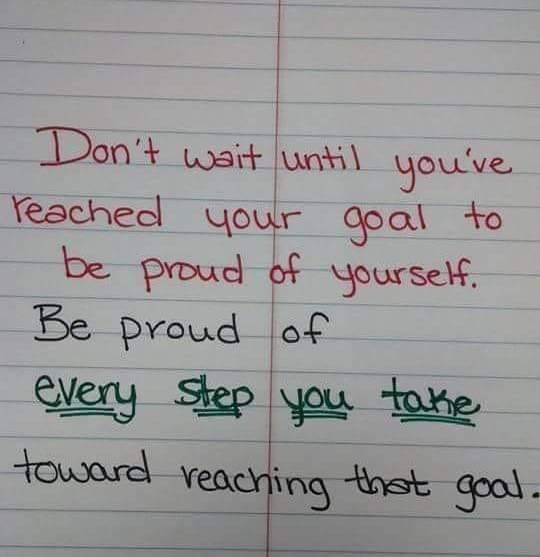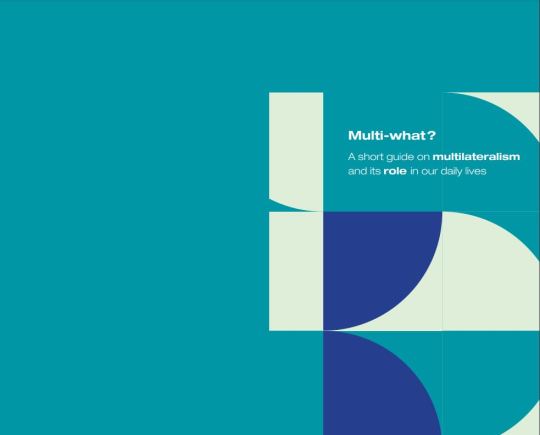#Sustainable development goals
Text
Research in degrowth is interested in a “socially sustainable and equitable reduction (and eventually stabilisation) of society's throughput” while ensuring wellbeing. Currently postgrowth/degrowth scenarios, while politically complicated, are humanity’s best bet to avoiding a devastating 1.7 degrees of warming by 2030, as predicted by the latest IPCC report. This is because “degrowth scenarios minimize many key risks for feasibility and sustainability compared to technology-driven pathways, such as the reliance on high energy-GDP decoupling, large-scale carbon dioxide removal and large-scale and high-speed renewable energy transformation”.
Importantly, the focus of degrowth lies in limiting the economic expansion of the Global North to give people in the Global South the chance to meet their material needs for wellbeing within the bounds of the planet. Degrowth is thus about reorienting the economy towards societal welfare – this might even entail nominal economic growth in the Global South in the short-term, as material and energy expansion is needed to provide for human needs. However, the key point is limiting economic expansion beyond what is needed for societal welfare to avoid ecological collapse – starting with the affluent North. Degrowth in the Global North is needed most of all for the “buy-in” of the Global South to long-term social-ecological sustainability. Current lifestyles in the Global North are deeply unsustainable and unjust.
Replicating the old pattern of industrial development of the Global North in the Global South will place all (both Global North and Global South) outside the safe operating space for humanity with planetary boundaries.
From “Decent work and economic growth” to “Sustainable work and economic degrowth”: a new framework for SDG 8
#degrowth#sustainability#Sustainable Development Goals#climate change#this was one massive paragraph so I broke it up for easier reading
74 notes
·
View notes
Text
just a heads up I may take a break from tumblr for a bit (or I may not. I may fail at it which we’ll deal with if we get there) because it’s starting to feel like the news rn. and I know my limit but also my creativity as an activist and how negativity does stifle it and I’ll be a better activist if I step away and focus on solutions for a while.
I might post some of these solutions:: I’m doing a course on making an impact via business as well as my urban design stuff and I’m gonna post some of that at some point, some guinea fowl pics and I’ve got some music for over at @edge-oftheworld that’s almost ready to put up. so I’ll still check my notifs and if you see something I’d like please please please tag me in it??? I will appreciate an awful lot. just need to not see sad world news for a second but I want to see your neurodivergence headcanons and ideas and what you think of songs.
also dm me if you want my Instagram or fb or email or linkedin idk just know I rarely check all of those too but I will change my ways if we are having a good conversation :)
#psa#climate solutions#personal mental health tag#sustainable development goals#just filing under these tags so I Remember#also. I’ll probably write an essay about how shakes inspires/captures my entire life’s purpose and need behind it at some point#and probably come back to brainstorm how the merry thieves could stop climate change in an au. you know I’m doing better when I start havin#ideas for that. so if you like that idea please remind me of it I will forget if I’m not feeling it Right At That Moment#I’ve got a post comparing genocide to domestic abuse too comingwhen I’ve got my thoughts together#but I need to take space to figure out something I can actually do rather than just watching helplessly on the internet which doesn’t help
11 notes
·
View notes
Text
Bill Gates and his sustainable development goal lackeys discuss "conspiracy theories" about Bill
(Quotes from Bill Gates) : "Most days during the pandemic 90% of the messages, millions of them that had anything to do with me were about how maybe vaccines were a plot, you know this whole tracking thing." "Why do I want to track you?" "Do I have the time to track all these people?"
⬛⬛⬛⬛⬛⬛⬛⬛⬛⬛⬛⬛⬛⬛⬛⬛⬛⬛⬛⬛
[ So riddle me this Bill: Where the hell do you get the figure "90%" if you haven't been tracking anything?🤔 And riddle me this: Why has Microsoft Windows been copying the hard drives and external storage of every user since 2015 (as per a sneaky clause in the tems of service agreement)? But rest easy MS Windows users, I'm certain that Bill would tell you this has nothing to do tracking. 😆🤣Lmfao Oh, and where would Bill find the "time to track all these people" as he put it? It's called algorithms, a staff of thousands, and virtually endless capital at your disposal. ]
#bill gates#nwo#covid 19#covid vaccine#covid vax#climate change#climate hoax#sustainable development goals#world economic forum#big pharma#big tech#scamdemic
34 notes
·
View notes
Text
Regulatory Environment of Financial Institutions.
Financial regulations are laws and rules that govern financial institutions. Regulations of financial institutions focus on providing stability to the financial system, fair competition, consumer protection, and prevention and reduction of financial crimes. By the mid-1970s, the global financial system witnessed market-oriented reforms that led to liberalization in the financial system, such as the reduction of interest rate controls, removal of investment restrictions on financial institutions and a line of business restrictions, and control on international capital movements. The modern trend observed is that financial sector regulation is moving toward a greater cross-sector integration of financial supervision. In 1998, the adoption of the Basel Accord, which required international banks to attain an 8% capital adequacy ratio was a major significant milestone in banking regulations. The collapse of the global financial system that led to the global crisis can be attributed to the systemic failure of financial regulation. Basel I defined bank capital and bank capital ratio based on two-tier systems. The Basel II framework consisted of Part 1, the scope of application and three pillars, the first one being minimum capital requirements, the second one a supervisory review process, and the third pillar is market discipline. The Basel III framework prepared new capital and liquidity requirements for banks.
Learn more about Regulatory Environment of Financial Institutions related to the publication - Strategies of Banks and Other Financial Institutions: Theories and Cases.
#Financial regulations#Regulations of financial institutions#financial security#financial industry#financial markets#financial risk management#bank capital ratio#Basel Accord#interest rate controls#international capital movements#banking system#4 december#sustainable development goals#international day of banks
2 notes
·
View notes
Text
An article I wrote with a colleague got published
"Absent, Obscured, and Hidden: An interdisciplinary analysis of visual race, ethnicity, and gender in UNDP representations of inequality"
This study covers visual analyses of digital media to explore issues of inequality in development discourse. Using web-based articles presented by the United Nations Development Programme as our central object of research, we show the extent to which discourses on sustainable development represent ethnicity, gender, and race. This paper argues that representations can be interpreted as an integral part of systemic inequality. We demonstrate that the discursive formation reflects and encourages a specific approach to sustainable development, especially regarding inequality reduction. This approach is based on the four analytical categories: absence, arrangement, essentialization, and obscuration. This work encourages further interdisciplinary research and argues for a methodologically combined inequality analysis.
Here is the link: https://www2.hu-berlin.de/transcience/page5.htm
6 notes
·
View notes
Text
This though.

#mental health#feelings#so proud#sustainable development goals#body goals#personal gain#i got this#accomplishments#dont give up
32 notes
·
View notes
Photo

Don't be a Butthole! Practice Safe Sex!
#giphy#united nations#sdg#soil#biodiversity#fao#gsp#sustainable development goals#food and agriculture organization#egyptiancat204#soils#faosoils#global soil partnership#gsobi#healthy soils#soil biodiversity
3 notes
·
View notes
Photo




animation logo & character design, illustrations
client: ニャンちゅう!宇宙!放送チュー! (NHK Eテレ)
4 notes
·
View notes
Text
Global youth skill forum 2024 - ILO Closing address.
Listen to reflections on the discussions during the forum and learn about encourage continued action.
Watch the Global Skills Forum - Closing addresses

#panel discussion#global skills forum#skills development#young people#youth skills#quality apprenticeships#skills & lifelong learning#jobs & social protection#jobs & social rights#sustainable development goals#global goals
0 notes
Text
IP and Sustainable Development Goals.

Every 26 April, we celebrate World Intellectual Property (IP) Day to learn about the role that IP rights play in encouraging innovation and creativity. This year, we celebrate changemakers around the world who are driving the innovation and creativity needed to achieve the Sustainable Development Goals (SDGs) and build a better and more sustainable future for everyone. Follow us on social media for further updates about #WorldIPDay!
#26 april#intellectual property#worldipday#european innovation council and SMEs executive agency#ip and the sdgs#connect ip to the sdgs#sustainable development goals#SDGs#creativity & innovation
0 notes
Text
Explore the short guide on multilateralism and its role in our daily lives.

In development through the Sustainable Development Goals
and in conflict reduction through inclusive peace processes,
the United Nations System has integrated this multi-actor approach to collective responses and is likely to continue to act as a hub for global cooperation networks. An effective multilateral platform
remains indeed essential to address local and global
challenges that only appear to grow in scale and complexity.
#multilateral cooperation#multilateral system#multilateral world#multilateralism#collective decision making#collective responnses#effective multulateralism#addressing global challenges#local challenges#inclusive peace processes#mediation processes#conflict reduction#sustainable development goals
0 notes
Text
Strengthen monitoring of the state of the Earth.

The portal is implemented and operated by the European Space Agency and provides a single internet discovery and access point to the ever-growing quantities of heterogeneous collections of Earth observations from satellites, airplanes, drones and in-situ sensors at global, regional and local scales through the Global Earth Observation System of Systems (GEOSS).
The GEOSS is a social and software ecosystem connecting a large array of observing systems, data systems and processing services to strengthen monitoring of the state of the Earth. It facilitates data and information accessibility and interoperability to support the Sustainable Development Goals (SDG) agenda and the Disaster Risk Reduction.
The GEOSS Platform is the cornerstone around which the GEOSS software ecosystem is implemented. The GEOSS Platform is the “glueware” that enables the connection and coordination of the many autonomous and multi-organizational systems and services contributing to GEOSS
#planet earth#blue marble#Earth observation data#EOSS Platform#satellites#airplanes#drones and in-situ sensors#Sustainable Development Goals#Disaster Risk Reduction
0 notes
Text
human societies are ecosystems
our economies are ecosystems
humans are part of the ecosystem
both where you are (small scale)
and global (large scale)
because everything we do in the planet is linked
like one big ecosystem
because it is
our societies and economies are part of this
so it’s integral we ecosystem well
we create relationships that restore balance
to this ecosystem
a balance that we have spent centuries destroying
actually not everyone has been destroying it
anyway
let us view us through the lens of ecology
and this is how we do it
22 notes
·
View notes
Text
Review of Global Hunger Index
Muhammad Hammad
As the year 2030 looms and just seven years remain to achieve the Sustainable Development Goals, nearly three-quarters of a billion people are unable to exercise their right to adequate food. Hunger is not new, and neither are its drivers.
What is new is that we now live in a time of what has been termed “poly-crisis”: the compounding impacts of climate change, conflicts,…

View On WordPress
#Development Economics#Environmental Economics#Food Crisis#global hunger#Hunger#Hunger in Afghanistan#Social Development#Sustainability Challenges#sustainability practices#Sustainable Development#Sustainable Development Goals
0 notes
Text
(9th meeting) 23rd session of the Committee of Experts on Public Administration - Economic and Social Council.
Institution building in fragile and conflict-affected areas
- Expert panel moderated by the Vice-Chair
- Interactive dialogue with CEPA members, Member States, United Nations system and civil society organizations
Adoption of the report on the 23rd session
- Moderated by the Chair
- Informal report of the working group on the United Nations Public Service Awards
- Presentation of draft report by the Rapporteur
- Review of recommendations and matters to be brought to the attention of the Economic and Social Council Adoption of the draft report on the 23rd session
Closing of the session
The Committee of Experts on Public Administration (CEPA) is a UN technical advisory body that studies and makes recommendations to improve governance and public administration structures and processes for development. It assists ECOSOC by reviewing trends, issues and priorities in public administration, notably in relation to the 2030 Agenda for Sustainable Development and in support of the implementation and progress reviews of the SDGs.
The Committee of Experts on Public Administration will hold its twenty-third session (CEPA23) at UN Headquarters in New York from 15 to 19 April 2024. The theme is "New governance insights to advance the SDGs and eradicate poverty".
Watch the (9th meeting) 23rd session of the Committee of Experts on Public Administration - Economic and Social Council
0 notes
Text
(Part 6) ECOSOC Youth Forum 2024 - Youth and the Summit of the Future.
The Economic and Social Council (ECOSOC) Youth Forum 2024 will take place from 16 to 18 April 2024 at the United Nations headquarters in New York.
Watch the (Part 6) ECOSOC Youth Forum 2024 - Youth and the Summit of the Future.
#young people#2030 agenda#global goals#sdgs#poverty#resilient and innovative solutions#youth#youth2030#youth engagement#GlobalGoals#end poverty#youth empowerment#webcast#YouthForum#sustainable development goals#summit of the future
0 notes